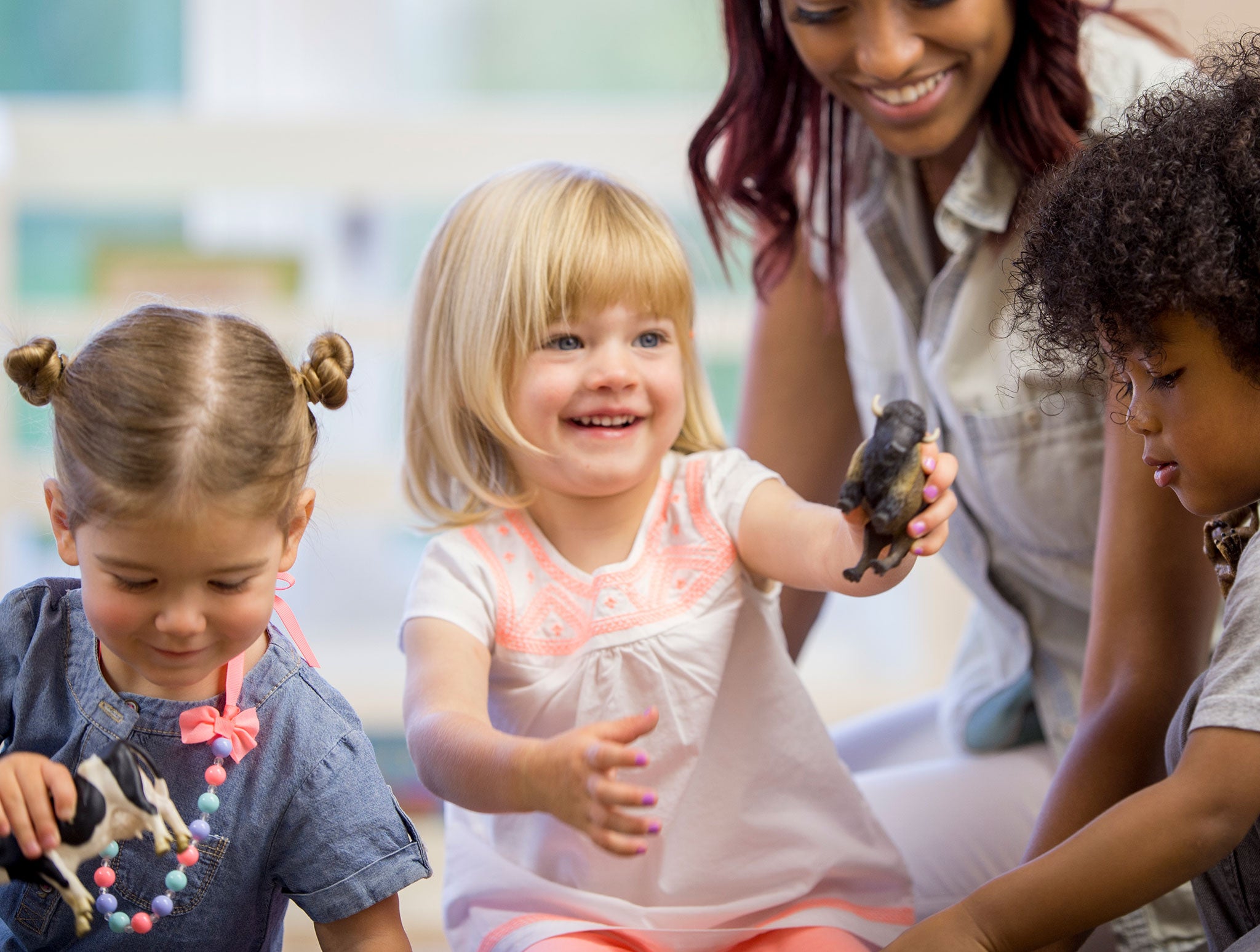Harmful gender stereotypes causing lower self-esteem in girls and poorer reading skills in boys, study finds
‘We need to end the ‘princessification’ of girls and the toxification of boys,’ says Fawcett Society chief executive

Your support helps us to tell the story
From reproductive rights to climate change to Big Tech, The Independent is on the ground when the story is developing. Whether it's investigating the financials of Elon Musk's pro-Trump PAC or producing our latest documentary, 'The A Word', which shines a light on the American women fighting for reproductive rights, we know how important it is to parse out the facts from the messaging.
At such a critical moment in US history, we need reporters on the ground. Your donation allows us to keep sending journalists to speak to both sides of the story.
The Independent is trusted by Americans across the entire political spectrum. And unlike many other quality news outlets, we choose not to lock Americans out of our reporting and analysis with paywalls. We believe quality journalism should be available to everyone, paid for by those who can afford it.
Your support makes all the difference.Damaging stereotypes are destroying girl’s self-esteem and leading to poorer reading skills among boys, a new report has found.
The study, conducted by the Commission on Gender Stereotypes in Early Childhood, discovered rigid gendered stereotypes are fuelling a mental health crisis among children and young people.
Researchers warned gendered pigeonholing is at “the root” of men being substantially more likely to commit suicide than women, women being more likely to have an eating disorder, and violence against women and girls.
Three quarters of parents told the commission, which was launched by leading gender equality charity, the Fawcett Society, people treat boys and girls differently from an early age. While six in 10 say this has harmful repercussions.
Parents were seven times more likely to imagine their sons working in construction and almost three times as likely to foresee their daughters becoming nurses or carers.
Sam Smethers, chief executive of the Fawcett Society, said gender stereotyping is “everywhere” and causes “serious, long-lasting harm”.
She added: “From ‘boys will be boys’ attitudes in nursery or school, to jobs for boys and jobs for girls views among some parents, these stereotypes are deeply embedded and they last a lifetime.
“We need to end the ‘princessification’ of girls and the toxification of boys. The commercial sector too often uses gender stereotypes and segregates boys and girls simply to sell more products.
“But this is not about making everything gender-neutral. We also have to make women and girls visible when, because of pre-existing bias, the default male will still be the prevailing assumption. So for example, routinely showing children women leaders or scientists is important.”
She noted the majority of parents acknowledge there are issues around gendered stereotyping and want to eradicate this pigeonholing.
The report argues there needs to be an overhaul of education, parenting and the commercial sector as researchers warn stereotyping massively curbs career choices and drives the gender pay gap.
Professor Becky Francis, the commission’s co-chair, said: “What every parent hopes for their child, and what educators hope for children in their class, is that they will be free to achieve their potential – yet what the evidence shows is that we still limit our children based on harmful, tired gender stereotypes.
“That adds up to real harm. From boys’ underachievement in reading, to the gender pay gap, the evidence is clear that the stereotypes we impart in early childhood cause significant damage to our children.
“But this is also a message of hope. If government, companies, educators and parents take action, we can challenge stereotypes and change lives, making it possible for our children to live with fewer limitations.”
Some 55 per cent of black and minority ethnic (BME) staff working with children said they had witnessed black boys experiencing differential treatment based on race alongside gender. While 49 per cent said the same for Asian girls.
More than half of nursery workers, childminders, playworkers and primary school teachers working with children aged between zero and seven said they heard other members of staff say “boys will be boys” when boys behave badly.
A previous study, by development charity Plan International, found one in six girls and young women in Britain has not attended school or their workplace in the past year because they were anxious about the way they look.
Nine in ten girls said they feel a burden to tally up to an “ideal” type of face and physique and a quarter feel “ashamed or disgusted” by their body.
Researchers discovered concerns about appearance and body image were stopping girls from doing a number of important activities. Over a quarter have not left the house and a fifth have avoided public speaking due to such anxieties in the last year. One in 10 has also chosen not to take part in classes.



Join our commenting forum
Join thought-provoking conversations, follow other Independent readers and see their replies
Comments